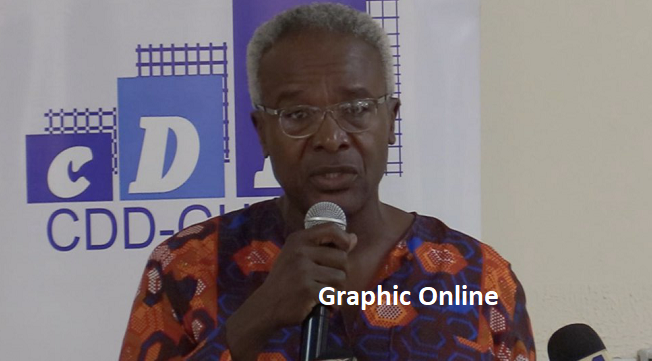A local government watcher, Mr Kofi Blankson has called for the creation of a ministry for the informal sector to propel the growth of the country’s economy.
According to him, ministries are created with specific objectives of driving the growth of certain sectors of importance to the overall development of a country’s economy, hence the need for the country to have a ministry for the informal sector.
He said Ghana’s economy is largely an informal driven one, hence the need for the government to create a ministry for the sector so that activities therein could be properly exploited.
Discussion
Mr Blankson said this in an interview with Graphic Online at the final public discussion and assessment of President Akufo-Addo’s one-year administration organised by the Centre for Democratic Development (CDD-Ghana).
The theme of the discussion held at the Coconut Grove Regency Hotel in Accra was “Socio-economic and corporate governance”.
Why informal Ministry
Mr Blankson, a panelist, said “first of all, people set up ministries because they think those ministries are important to our growth” and added that “the informal sector is where most of the economic activities is in the country”.
“The informal sector is the bigger area of our economy”, he said, noting that it would be prudent for the government to get the players in the informal sector a better access to capital and government services to enable them expand their businesses and contribute to the country’s economy.
Mr Blankson said by creating a ministry for the informal sector, it would help the government to better understand the informal sector and properly tailor programmes and policies to meet their needs and those of the state.
Debt stock
Speaking on socio-economic governance at the event, Dr Charles Ackah, a Senior Research Fellow and Head of Economics Division at Institute of Statistical, Social and Economic Research (ISSER) of the University of Ghana, said the country ought to take immediate steps to reduce its debt stock.
That, he explained, could be achieved by the country reducing imports and increasing its exports, adding that government also needs to widen its tax net to bring in the informal sector.
Dr Ackah also said government needs to cut down on wastage, which he said contributes greatly to the soaring debt stock of the country.
He said because the country “is a middle income nation and receives very little donor support”, it needs to increase its domestic revenue mobilisation.
He said the country spends about GH¢15 billion every year on interest alone on its debts, something he said could worsen if proactive measures are not instituted to arrest the country’s spiraling debt stock.
Solutions
Dr Ackah also suggested that Ghana could repay its debts by focusing not only on its traditional exports such as cocoa, gold and oil but also on non-traditional exports, as well as adding value to its exports.
He cautioned against “unnecessary spending”, cautioning that “we need to be efficient on our spending”.
He explained that the country needs to channel its borrowed monies into productive projects than to spend it on goods and services that cannot repay the loans.

